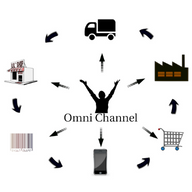5 Point Success

บริการลูกค้าและลูกค้าสัมพันธ์
536 week ago — ใช้เวลาอ่าน 6 นาที
Traditionally, the neighborhood store used to be the only place for your day-to-day requirements. After many years of doing business with you, the store-keeper would invariably end up being a close acquaintance, one who knew your requirements, provided discounts and personalized them for you. In turn, you were his customer for life. This was the conventional state of consumer loyalty we were accustomed to while growing-up. However, a lot has changed since then.
With evolving retail formats such as hypermarkets, supermarkets, and specialty stores; in-store and online options galore, the erstwhile concept of one-to-one engagement has blurred. Moreover, shoppers of this day and age are well informed, with real-time access to instant updates and offers. Hence, they seek 'value' as the primary attribute of every purchase decision made.
A loyalty program should ideally comprehend the shopping attributes of consumers based on inferences, derived from well-defined purchase patterns, noticed over a period of time. Often, those on a multi-brand loyalty program that has partners spread across shopping categories are able to do this better. They are able to observe consumer spends throughout an assortment of segments such as groceries, electronics, consumer durable goods, apparel, home décor, fuel, telecom and travel, and draw the most scientific and logical conclusion as to what will be most fitting for customers. To underscore the role of loyalty program is to highlight its inherent ability to 'give something in return' by means of either instant or gradual gratification. In a nutshell, the idea is to ensure that the consumers earn a compelling value for their everyday shopping. Quite literally, make every consumer transaction a rewarding experience.
For that your loyalty program has to rise to the standards expected by the customers. And that’s only possible when it has the five critical elements:
- Power of aggregation
Setting up a multi-platform loyalty program is key to the success of a loyalty program. The four essential pillars of a loyalty program are: finance, retail, telecom and fuel. These segments capture 70% of an average Indian consumer's wallet share and will ensure you derive loyalty benefits on majority of the expenses incurred during an average day. Thus, the real potential of the loyalty program can be obtained best with a multi-brand loyalty program that provides the possibility to draw benefits from multiple categories and thus, more collection avenues. - Ease of accumulation
To avoid losing customers' interest owing to slow points accrual or the expiry of old points, accessibility of the loyalty program makes for a key factor in making any loyalty program successful. Customers prefer a loyalty program that has multiple touch-points, which are in proximity to them, such as in-store, online, kiosks and mobile. This renders the possibility of increasing frequency of usage while exploring the maximum potential of the program. - Flexible payment modes
Customers want convenience. They prefer to have the option to use any payment mode – cash, cheque, credit or debit card and prepaid cards, across the partner network of the loyalty program and, still be rewarded for the transactions made. Providing them the flexibility will accentuate regular usage of the loyalty program as it allows them instant redemption and consequently, real-time saving. - Simple processes
Customers detest the hassle and confusion of carrying and using multiple cards. This is a huge advantage multi-brand loyalty programs have over others as one card is recognized across labels, stores, e-commerce platforms and locations. They get to reap the benefits of the program, minus the fatigue of undergoing different procedures with various brands. Plus, all their offers and points can be redeemed with just one card. To sum up, it keeps things simple and pragmatic. - Individual recognition
Plan your loyalty program such that you provide tailor-made offers to suit the individual needs of customers through exclusive offers that they can make most of. The more relevant the offer is to the customer, the more he is likely to go for it and, in turn, earn more points. Loyalty program companies need to understand the trends and shopping interests of customers and tweak their offers accordingly. Not just customers, a rewards and recognition program is a powerful tool for employee motivation and performance management too. Increasingly, companies are now looking for fresh and creative ways to boost employee morale as opposed to a traditional monetary bonus. Loyalty programs also allow each organization to customize the program to accommodate specific key performance indicators.
Current times call for a new standard for loyalty programs that looks out to empower its customers to cash in points in other segments of entertainment and dining beyond the customary shopping basket. For that matter, loyalty points have graduated to the extent that they are recognized as a credible source of donation for charitable causes as well. Clearly, the way customers are using loyalty programs is breaking all stereotypes. You too need to look at stretching the limits of what your loyalty program can do.
Article Source: STOrai Magazine
เครือข่ายกับ SMEs ที่กล่าวถึงในบทความนี้
ดูโปรไฟล์ของ STOrai
Most read this week
Trending














Comments (1)
Share this content
Please login หรือ สมัครสมาชิก to join the discussion